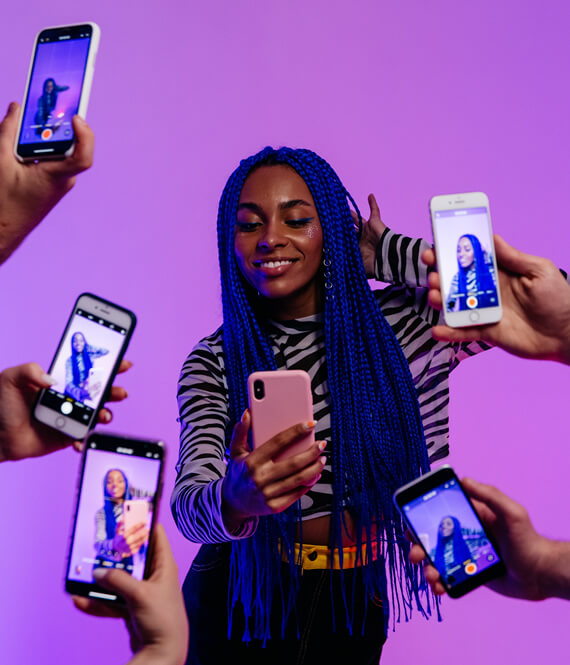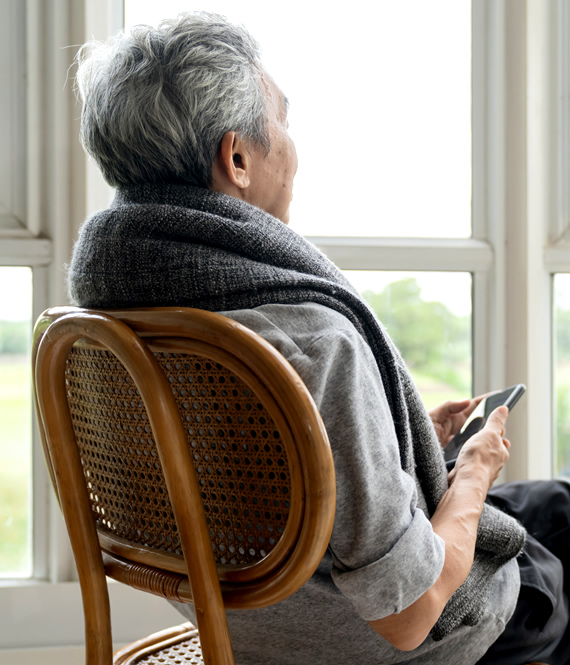
10 Helpful Resources for Mental Health Issues In 2024
We recommend helpful products in our articles. Read our full disclosure here. The content on this website is not intended to be a substitute for professional advice, diagnosis, or treatment.
Last year was not that great for most people’s mental health, and neither was the year before that.
Maybe 2024 will get better, but that remains to be seen; we’re still at the beginning of the year.
One thing that can change immediately, though, is the way you take care of your own mental health.
Whether you’ve just been feeling down in the dumps or struggling with serious issues like addiction, there are all kinds of resources available (both paid and free).
There are services that help someone who’s depressed to connect with therapists or licensed medication providers.
Certain rehab centers offer a way out of substance abuse for someone who needs to break their drug habit.
There are apps that help you to cope with everyday stress.
These are just a few examples.
If you’re looking for something specific, check out the list below – you might just see something that fits your own mental health needs.
Lemonaid
Do you know what they say about life giving you lemons?
Now there’s an online resource to help you deal with them.
Lemonaid is a telehealth service that allows people to consult medical professionals and then receive the appropriate prescriptions.
Users get to skip the doctor’s visits and have medications delivered to their homes, plus they have the option to get additional mental health support.
The app is free, but the service costs $25/month for a consultation and $95/month for depression and anxiety services (consultation costs included).
Lincoln Recovery
Lincoln Recovery is a rehab center located in Illinois that offers inpatient addiction treatment programs.
Each treatment plan is crafted to suit the patients’ needs – the focus isn’t just on dealing with past decisions, but on making better ones for the future.
Patients have private rooms, and the staff is made up of trained nurses, doctors, and therapists who are available 24/7.
The center also accepts many different insurance networks, which makes their services very accessible.
Wysa App
Just because someone’s mental health issues aren’t in full-on crisis mode, doesn’t mean they don’t deserve help too.
Wysa uses AI for its chatbot, providing free CBT techniques and empathetic listening to make sure people feel heard.
Anyone who has something on their mind can talk through their issues with a cute virtual penguin while learning mindfulness techniques and calming exercises.
There are also paid plans that give users access to additional resources, as well as limited text sessions with qualified therapists.
Cerebral
Cerebral is an online mental care service.
Three different levels of paid subscriptions provide various combinations of care counseling, medication, and therapy.
It’s exclusively built to care for people with mental health conditions and is available in 33 states (with more on the way).
App users can attend appointments via voice calls, video calls, or text chats.
Care counselors talk you through behavioral techniques, while licensed therapists and medication providers take care of you during scheduled appointments.
Unusually for this type of resource, they also accept insurance.
National Suicide Prevention Lifeline
Even if someone isn’t actively considering suicide, they can still call this toll-free hotline at 800-273-8255.
They won’t be shunted around by robot voices and automated menus, either.
They’ll be able to speak with a trained counselor who will listen to their problems, and direct them to a practical next step.
It’s available for free to anyone who’s experiencing an emotional crisis.
Postpartum Support International
Postpartum depression isn’t just difficult to deal with because it’s depression – it’s often accompanied by feelings of guilt because new parents are “supposed to be happy”. PSI is an educational platform that spreads awareness regarding postpartum depression, offers information on local support groups, a helpline, online support groups for parents of any gender, chat forums guided by postpartum experts, and peer mentor programs.
Pride Counseling
According to multiple sources, LGBTQ individuals are significantly more prone to symptoms of depression than their cisgender counterparts. Pride Counseling is a provider of online therapy that connects licensed therapists to clients; users get unlimited messages, plus online therapy sessions.
All therapists specialize in LGBTQ issues, and users can access their services via the app or the website.
If one counselor isn’t working for someone, they can switch to a different one; users can also choose between text, phone, or video sessions.
The SelfWork Podcast
This free podcast is the work of Dr.
Margaret Rutherford, a private practice psychologist with 25 years of experience.
Much of her work focuses on “hidden depression” – a depression that’s masked by perfectionism.
Listeners can send her an email or a recorded message of whatever they’re having issues with; she won’t necessarily answer them directly, but she reads or listens to all of them, and puts together each podcast based on the messages she receives.
Common themes on the podcast include anxiety, depression, grief, and trauma.
Sanvello App
With a free version and a few levels of paid subscriptions, Sanvello has a variety of options for anyone who wants to improve their mental health.
They specifically work with people suffering from anxiety, depression, and stress, by offering self-care tips, coaching, therapy, and online community support.
CBT is also taught through short courses, guided meditations, and journaling techniques.
Users can even discuss their experiences or problems with others via the community hub.
Talkspace
There are three different subscription tiers, focusing on unlimited therapist messaging Monday-Friday.
The lowest tier doesn’t include live sessions, but the other two do.
After downloading the app, a short assessment will match people with three different therapists to choose from.
If one doesn’t seem like a good fit, they can switch at any time at no extra cost.
There are therapy options for couples, individuals, and teens; users can also get assistance from a psychiatrist for prescription medications.
Unlike most online therapy-based services, Talkspace allows users to message their licensed therapist whenever they feel the need to.
There’s always help available in some form – you just have to look for it.
No matter what you’re dealing with, you don’t have to deal with it alone.
Online or in-person resources can make all the difference in your mental health journey; once you take steps to start that journey, you’re already halfway there.
"We love to research problems, examine studies, analyze solutions, and share with you ideas that make life healthier. You can learn about us and our editorial standards here. Have suggestions or feedback to share? Send us a message!."













Leave a Comment